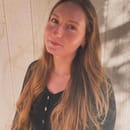“Do you get to do school in your pajamas?”
“What’s 247 x 86?”
“Who was the 18th president?”
“Are you dumb?”
“Do you know how to socialize?”
“Are you a genius?”
“Are you religious?”
“Do you even have any friends?”
“Is your mom the principal?”
Growing up as a homeschooled kid, endless variations of these questions could be expected daily.
I officially retired my position as “homeschooler” when I started college, following a complete K-12 educational career outside of public school, but the echoing misperceptions of what most seem to think homeschooling looks like have remained thoroughly in my mind.
My parents both worked in education and had their own personal qualms with the “one size fits all” approach that so many academic institutions they had worked with had promoted due to logistical constraints and an organizational need for overarching curricula.
At 6 years old, my older brother was neurodivergent and energized enough that the cookie dough of his personality couldn’t quite be held by the cookie cutter shapes of a traditional classroom. By the time I came along two kids later, homeschooling had become the norm in my house. But for the school kids around me and the adults around them, I was an enigma, a problem, or a concern to be addressed.
The academic quizzing was a big one. Those questions were pervasive, immediate, and forceful. As if a hybrid monster of a concerned social worker and the host of “Wheel of Fortune” had taken over their bodies, children and adults alike would snap into testing mode the second I’d finished pronouncing the “D” in “homeschooled.” It seemed that everyone and their mother felt it was their personal responsibility to ensure that I could do long division, name every president, and identify the powerhouse of the cell.
Though my personal homeschooling experience was wonderful and beneficial, I understand the concerns that can arise surrounding nontraditional schooling. The harmful and abusive “homeschooling” seen by the TV show family the Duggars on “Nineteen Kids and Counting” is a more extreme example. Families who homeschool for reasons that seek to minimize, versus expand, the knowledge of children, is the slightly milder, yet still effectively harmful, side.
I also understand how privilege impacted my personal homeschooling experience. My family was middle class, my parents were both educated, and my mom had the choice to stay at home to teach us full-time while my dad was at work. Without these key privileges, I know how different my experience could have been.
For me, homeschooling was not conducted exclusively from inside my home—not even close.
Geography and language studies took the shape of trips to Nicaragua, Mexico and Costa Rica, as well as picking out landmarks on the horizons of various states while co-piloting for my pilot dad as we flew in a small Cessna 150 airplane.
History was wandering around 300-year-old castles in Puerto Rico, going to endless museums, and reading historical literature.
Math and science were creating a paper mâché palm tree to scale, building dollhouse-sized cities in the basement, and watching vinegar and baking soda explode in a glass in the kitchen sink.
Economics looked like creating our own pretend restaurant menus with individual price points on each item and then running our “business” out of the family kitchen for the day.
English was qualified by checking out stacks of books from the library so big our little hands could barely hold them and writing and illustrating picture books for fun at 8-years-old. Those turned into novels by the time I was 15.
P.E. was competitive gymnastics, ballet, aerial circus arts, and baseball.
Extracurriculars looked like music school, horseback riding lessons, being paid to act in professional musicals and plays, painting and photography classes, and joining a bowling team, to name a few.
The point? Homeschooling, if done with intention, can be exactly what a kid needs. For me, it opened opportunities for my neurodivergent brain to learn in ways traditional school couldn’t have thoroughly supported and left me with experiences that gave me worldly perspectives I don’t believe I could have gleaned from behind a desk.
And for the record?
Yes, in my Scooby Doo pajama pants.
21,242.
Ulysses S. Grant.
Maybe!
How much does a polar bear weigh? Enough to break the ice!
Maybe!
Nope.
Yep. I can give you some references if you like.
Effectively! And I never got detention once.







